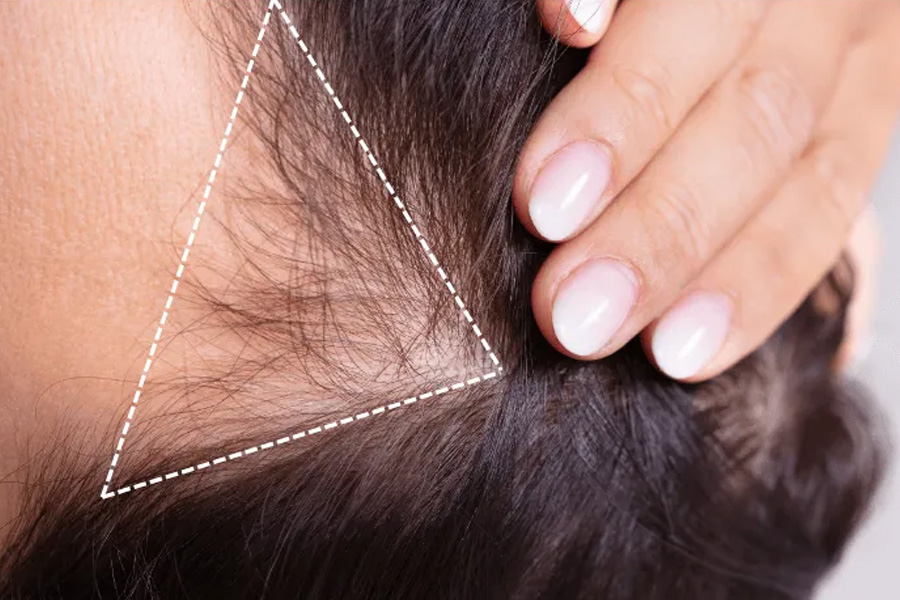Female hair loss is a prevalent issue that affects women across different age groups and backgrounds. In Singapore, a society that values appearance and self-esteem, hair loss can significantly impact a woman’s confidence and mental well-being. Fortunately, there are various treatments available that can help women address this issue effectively. In this article, we will explore the causes of female hair loss, the importance of medical consultation, the effectiveness of various treatments, and how to choose the best option for female hair loss treatment in Singapore.
Understanding Female Hair Loss
Female hair loss, also known as female pattern hair loss (FPHL), can be caused by a variety of factors, including genetics, hormonal changes, medical conditions, and lifestyle factors. Common causes include:
Genetic Predisposition:
A family history of hair loss can increase the likelihood of experiencing hair thinning and loss.
Hormonal Changes:
Conditions such as polycystic ovary syndrome (PCOS), menopause, and pregnancy can lead to hormonal imbalances that affect hair growth.
Medical Conditions:
Thyroid disorders, autoimmune diseases, and nutritional deficiencies can contribute to hair loss.
Lifestyle Factors:
Stress, poor diet, and harsh hair treatments can also lead to hair thinning and loss.
The Importance of Consulting a Doctor
It’s crucial for women experiencing hair loss to seek advice from a qualified healthcare professional. A comprehensive evaluation can help identify the underlying cause of hair loss and determine the most appropriate treatment plan. Medical consultation involves:
Medical History Review:
Understanding the patient’s medical history, family history, and lifestyle factors.
Scalp Examination:
A thorough examination of the scalp and hair to assess the extent and pattern of hair loss.
Diagnostic Tests:
Blood tests and other diagnostic tests to identify any underlying medical conditions.
Effective Treatment Options
Medications
Prescription medications are often the first line of treatment for female hair loss. Two widely used medications include:
Minoxidil:
Available as a topical solution or foam, minoxidil stimulates hair growth by improving blood circulation to the hair follicles. It is applied directly to the scalp and has been proven effective in promoting hair regrowth and preventing further hair loss.
Finasteride:
An oral medication that works by reducing the levels of dihydrotestosterone (DHT), a hormone associated with hair loss. Although primarily used for male pattern baldness, it can be prescribed to women in certain cases.
Supplements
Nutritional supplements can support overall hair health, but their effectiveness in treating hair loss is not well-established. Common supplements include:
Biotin:
Known for promoting hair and nail health, biotin is a popular choice, but its benefits in treating hair loss are not conclusively proven.
Vitamin D and Iron:
Deficiencies in these nutrients can contribute to hair loss, so supplementation may be beneficial if a deficiency is diagnosed.
Surgical Procedures
Hair transplantation is a surgical option for women seeking a permanent solution to hair loss. The procedure involves:
Harvesting Hair Follicles:
Hair follicles are taken from areas of the scalp with denser hair growth (donor sites) and transplanted to thinning or balding areas.
Natural-Looking Results:
When performed by a skilled surgeon, hair transplantation can yield natural-looking results, but it’s important to consider the potential risks and costs associated with surgery.
Non-Surgical Treatments
Non-surgical treatments, such as low-level laser therapy (LLLT), can also be effective. LLLT uses light energy to stimulate hair growth and improve hair density. It is a painless procedure that can be done at a clinic or using at-home devices.
Personalized Treatment Plans
Developing a personalized treatment plan is essential for effective hair loss management. A healthcare professional will tailor the treatment plan to the individual’s specific needs and concerns. This may include a combination of:
Medications:
Prescription treatments to stimulate hair growth and prevent further loss.
Lifestyle Modifications:
Recommendations for a balanced diet, stress management, and healthy hair care practices.
Ongoing Monitoring:
Regular follow-up appointments to monitor progress and adjust the treatment plan as needed.
Conclusion
Effective female hair loss treatment in Singapore involves a holistic approach that addresses the underlying causes and promotes hair regrowth. By consulting a qualified healthcare professional, women can receive expert guidance and personalized treatment plans that cater to their specific needs. Whether opting for medications, supplements, surgical procedures or non-surgical treatments, the key to successful hair loss management lies in a comprehensive and individualized approach.


